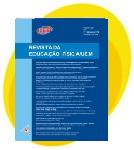<b>Life orientation and health risk behavior in college students: an analysis under the positive psychology perspective</b> - doi: 10.4025/reveducfis.v23i3.16856
Abstract
The aim of this study was to analyze college students’ life orientation in terms of risk behaviors to health. 403 Physical Education students took part in the project, at a Northwestern University of Paraná. The instruments used were the Life Orientation Test, the National College Health Risk Behavior Survey and a form with demographic data. For data analysis, we applied the Kolmogorov-Smirnov test, Kruskal-Wallis and Mann-Whitney U (P<0,05). The results showed that: more optimistic students have a self-perception as being healthy individuals (P=0,001); live with a spouse (P=0,022); had sexual intercourse (P=0,001); used seat belts in the front seat (P=0,044) and in the back seat (P=0,041); did not ride with a drunk driver (P=0,015); did not carry a gun (P=0,003); were not involved in fights (P=0,010); did not consider a suicide attempt (P=0,004) and ate salad (P=0,005). We conclude that optimistic students adopt preventive and healthier behaviors, and establish bonds.
Downloads
Metrics
• Authors retain the copyright and full publishing rights without restrictions.

This work is licensed under a Creative Commons Attribution 4.0 International License.









_1502.jpg)











